Home
Bad as Me [LP]
Barnes and Noble
Loading Inventory...
Bad as Me [LP] in Bloomington, MN
Current price: $26.99

![Bad as Me [LP]](https://prodimage.images-bn.com/pimages/0045778715114_p0_v3_s600x595.jpg)
Bad as Me [LP] in Bloomington, MN
Current price: $26.99
Loading Inventory...
Size: OS
Bad as Me
is
Tom Waits
' first collection of new material in seven years. He and
Kathleen Brennan
-- wife, co-songwriter, and production partner -- have, at the latter's insistence, come up with a tight-knit collection of short tunes, the longest is just over four minutes. This is a quick, insistent, and woolly aural road trip full of compelling stops and starts. While he's kept his sonic experimentation -- especially with percussion tracks --
Waits
has returned to
blues
,
rockabilly
rhythm & blues
, and
jazz
as source material. Instead of sprawl and squall, we get chug and choogle. For "Chicago" -- via
Clint Maedgen
's saxes,
Keith Richards
' (who appears sporadically here) and
Marc Ribot
's guitars, son
Casey Waits
' drums, dad's banjo, percussion and piano, and
Charlie Musselwhite
's harmonica (he appears numerous times here, too) -- we get a 21st century take on vintage
R&B
. Indeed, one can picture
Big Joe Turner
fronting this clattering rush of grit and groove, and this album is all about groove.
Augie Meyers
appears on Vox organ and
Flea
on bass to guide
' tablas and vocals on "Raised Right Men," a 12-bar stagger filled with delightful lyrical cliches from an America that has passed on into myth --
does nothing to de-mystify this; he just makes it greasy and danceable. The slow, spooky "Talking at the Same Time" is still in
form albeit with
ska
-styled horns to make things more exotic, as
waxes about the current state of economic affairs. He showcases history's circular nature as he bridges our national narrative from 1929-1941, and up to the present day: "Well it's hard times for some/For others it's sweet/Someone makes money when there's blood in the street...Well we bailed out all the millionaires/They got the fruit/We got the rind..."
Rockabilly
rears its head on "Get Lost," with
David Hidalgo
strutting a solid '50s guitar snarl above the horns.
Dawn Harms
' violin and
Patrick Warren
's keyboards add textural dimension to
Hidalgo
's and
Ribot
's arid guitars on the apocalyptic blues of "Face to the Highway," with
offering startling, contrasting images in gorgeous rhymes. This track, and the two proceeding ones -- the forlorn carny
ballad
"Pay Me" and the wasted lover's plea in the West Texas
mariachi
of "Back in the Crowd" -- set up the latter half of the record, where there are more hard-edged
and
rockers
, such as the spiky stomping title track, the cracked guitar ramble in "Satisfied," and the clattering, percussive anti-war rant "Hell Broke Luce" (sic). Between each of these songs are ballads. In the
y nightclub
of "Kiss Me" and the
country
-ish
folk
of "Last Leaf" lie lineage traces to
' earliest material: the latter features
Richards
in a delightfully ruined vocal duet. Indeed, even the set-closer "New Year's Eve," with
's guitars and accordion in one of
' signature saloon songs, quotes from "Auld Lang Syne" in the song's waning moments to send the platter off on a bittersweet, nostalgic note, reminding the listener of
' use of "Waltzing Matilda" in "Tom Traubert's Blues" all those years ago.
Brennan
's instincts were dead-on: it was time for a set of brief, tightly written and arranged songs -- something we haven't actually heard from
.
is an aural portrait of all the places he's traveled as a recording artist, which is, in and of itself, illuminating and thoroughly enjoyable. ~ Thom Jurek
is
Tom Waits
' first collection of new material in seven years. He and
Kathleen Brennan
-- wife, co-songwriter, and production partner -- have, at the latter's insistence, come up with a tight-knit collection of short tunes, the longest is just over four minutes. This is a quick, insistent, and woolly aural road trip full of compelling stops and starts. While he's kept his sonic experimentation -- especially with percussion tracks --
Waits
has returned to
blues
,
rockabilly
rhythm & blues
, and
jazz
as source material. Instead of sprawl and squall, we get chug and choogle. For "Chicago" -- via
Clint Maedgen
's saxes,
Keith Richards
' (who appears sporadically here) and
Marc Ribot
's guitars, son
Casey Waits
' drums, dad's banjo, percussion and piano, and
Charlie Musselwhite
's harmonica (he appears numerous times here, too) -- we get a 21st century take on vintage
R&B
. Indeed, one can picture
Big Joe Turner
fronting this clattering rush of grit and groove, and this album is all about groove.
Augie Meyers
appears on Vox organ and
Flea
on bass to guide
' tablas and vocals on "Raised Right Men," a 12-bar stagger filled with delightful lyrical cliches from an America that has passed on into myth --
does nothing to de-mystify this; he just makes it greasy and danceable. The slow, spooky "Talking at the Same Time" is still in
form albeit with
ska
-styled horns to make things more exotic, as
waxes about the current state of economic affairs. He showcases history's circular nature as he bridges our national narrative from 1929-1941, and up to the present day: "Well it's hard times for some/For others it's sweet/Someone makes money when there's blood in the street...Well we bailed out all the millionaires/They got the fruit/We got the rind..."
Rockabilly
rears its head on "Get Lost," with
David Hidalgo
strutting a solid '50s guitar snarl above the horns.
Dawn Harms
' violin and
Patrick Warren
's keyboards add textural dimension to
Hidalgo
's and
Ribot
's arid guitars on the apocalyptic blues of "Face to the Highway," with
offering startling, contrasting images in gorgeous rhymes. This track, and the two proceeding ones -- the forlorn carny
ballad
"Pay Me" and the wasted lover's plea in the West Texas
mariachi
of "Back in the Crowd" -- set up the latter half of the record, where there are more hard-edged
and
rockers
, such as the spiky stomping title track, the cracked guitar ramble in "Satisfied," and the clattering, percussive anti-war rant "Hell Broke Luce" (sic). Between each of these songs are ballads. In the
y nightclub
of "Kiss Me" and the
country
-ish
folk
of "Last Leaf" lie lineage traces to
' earliest material: the latter features
Richards
in a delightfully ruined vocal duet. Indeed, even the set-closer "New Year's Eve," with
's guitars and accordion in one of
' signature saloon songs, quotes from "Auld Lang Syne" in the song's waning moments to send the platter off on a bittersweet, nostalgic note, reminding the listener of
' use of "Waltzing Matilda" in "Tom Traubert's Blues" all those years ago.
Brennan
's instincts were dead-on: it was time for a set of brief, tightly written and arranged songs -- something we haven't actually heard from
.
is an aural portrait of all the places he's traveled as a recording artist, which is, in and of itself, illuminating and thoroughly enjoyable. ~ Thom Jurek
Bad as Me
is
Tom Waits
' first collection of new material in seven years. He and
Kathleen Brennan
-- wife, co-songwriter, and production partner -- have, at the latter's insistence, come up with a tight-knit collection of short tunes, the longest is just over four minutes. This is a quick, insistent, and woolly aural road trip full of compelling stops and starts. While he's kept his sonic experimentation -- especially with percussion tracks --
Waits
has returned to
blues
,
rockabilly
rhythm & blues
, and
jazz
as source material. Instead of sprawl and squall, we get chug and choogle. For "Chicago" -- via
Clint Maedgen
's saxes,
Keith Richards
' (who appears sporadically here) and
Marc Ribot
's guitars, son
Casey Waits
' drums, dad's banjo, percussion and piano, and
Charlie Musselwhite
's harmonica (he appears numerous times here, too) -- we get a 21st century take on vintage
R&B
. Indeed, one can picture
Big Joe Turner
fronting this clattering rush of grit and groove, and this album is all about groove.
Augie Meyers
appears on Vox organ and
Flea
on bass to guide
' tablas and vocals on "Raised Right Men," a 12-bar stagger filled with delightful lyrical cliches from an America that has passed on into myth --
does nothing to de-mystify this; he just makes it greasy and danceable. The slow, spooky "Talking at the Same Time" is still in
form albeit with
ska
-styled horns to make things more exotic, as
waxes about the current state of economic affairs. He showcases history's circular nature as he bridges our national narrative from 1929-1941, and up to the present day: "Well it's hard times for some/For others it's sweet/Someone makes money when there's blood in the street...Well we bailed out all the millionaires/They got the fruit/We got the rind..."
Rockabilly
rears its head on "Get Lost," with
David Hidalgo
strutting a solid '50s guitar snarl above the horns.
Dawn Harms
' violin and
Patrick Warren
's keyboards add textural dimension to
Hidalgo
's and
Ribot
's arid guitars on the apocalyptic blues of "Face to the Highway," with
offering startling, contrasting images in gorgeous rhymes. This track, and the two proceeding ones -- the forlorn carny
ballad
"Pay Me" and the wasted lover's plea in the West Texas
mariachi
of "Back in the Crowd" -- set up the latter half of the record, where there are more hard-edged
and
rockers
, such as the spiky stomping title track, the cracked guitar ramble in "Satisfied," and the clattering, percussive anti-war rant "Hell Broke Luce" (sic). Between each of these songs are ballads. In the
y nightclub
of "Kiss Me" and the
country
-ish
folk
of "Last Leaf" lie lineage traces to
' earliest material: the latter features
Richards
in a delightfully ruined vocal duet. Indeed, even the set-closer "New Year's Eve," with
's guitars and accordion in one of
' signature saloon songs, quotes from "Auld Lang Syne" in the song's waning moments to send the platter off on a bittersweet, nostalgic note, reminding the listener of
' use of "Waltzing Matilda" in "Tom Traubert's Blues" all those years ago.
Brennan
's instincts were dead-on: it was time for a set of brief, tightly written and arranged songs -- something we haven't actually heard from
.
is an aural portrait of all the places he's traveled as a recording artist, which is, in and of itself, illuminating and thoroughly enjoyable. ~ Thom Jurek
is
Tom Waits
' first collection of new material in seven years. He and
Kathleen Brennan
-- wife, co-songwriter, and production partner -- have, at the latter's insistence, come up with a tight-knit collection of short tunes, the longest is just over four minutes. This is a quick, insistent, and woolly aural road trip full of compelling stops and starts. While he's kept his sonic experimentation -- especially with percussion tracks --
Waits
has returned to
blues
,
rockabilly
rhythm & blues
, and
jazz
as source material. Instead of sprawl and squall, we get chug and choogle. For "Chicago" -- via
Clint Maedgen
's saxes,
Keith Richards
' (who appears sporadically here) and
Marc Ribot
's guitars, son
Casey Waits
' drums, dad's banjo, percussion and piano, and
Charlie Musselwhite
's harmonica (he appears numerous times here, too) -- we get a 21st century take on vintage
R&B
. Indeed, one can picture
Big Joe Turner
fronting this clattering rush of grit and groove, and this album is all about groove.
Augie Meyers
appears on Vox organ and
Flea
on bass to guide
' tablas and vocals on "Raised Right Men," a 12-bar stagger filled with delightful lyrical cliches from an America that has passed on into myth --
does nothing to de-mystify this; he just makes it greasy and danceable. The slow, spooky "Talking at the Same Time" is still in
form albeit with
ska
-styled horns to make things more exotic, as
waxes about the current state of economic affairs. He showcases history's circular nature as he bridges our national narrative from 1929-1941, and up to the present day: "Well it's hard times for some/For others it's sweet/Someone makes money when there's blood in the street...Well we bailed out all the millionaires/They got the fruit/We got the rind..."
Rockabilly
rears its head on "Get Lost," with
David Hidalgo
strutting a solid '50s guitar snarl above the horns.
Dawn Harms
' violin and
Patrick Warren
's keyboards add textural dimension to
Hidalgo
's and
Ribot
's arid guitars on the apocalyptic blues of "Face to the Highway," with
offering startling, contrasting images in gorgeous rhymes. This track, and the two proceeding ones -- the forlorn carny
ballad
"Pay Me" and the wasted lover's plea in the West Texas
mariachi
of "Back in the Crowd" -- set up the latter half of the record, where there are more hard-edged
and
rockers
, such as the spiky stomping title track, the cracked guitar ramble in "Satisfied," and the clattering, percussive anti-war rant "Hell Broke Luce" (sic). Between each of these songs are ballads. In the
y nightclub
of "Kiss Me" and the
country
-ish
folk
of "Last Leaf" lie lineage traces to
' earliest material: the latter features
Richards
in a delightfully ruined vocal duet. Indeed, even the set-closer "New Year's Eve," with
's guitars and accordion in one of
' signature saloon songs, quotes from "Auld Lang Syne" in the song's waning moments to send the platter off on a bittersweet, nostalgic note, reminding the listener of
' use of "Waltzing Matilda" in "Tom Traubert's Blues" all those years ago.
Brennan
's instincts were dead-on: it was time for a set of brief, tightly written and arranged songs -- something we haven't actually heard from
.
is an aural portrait of all the places he's traveled as a recording artist, which is, in and of itself, illuminating and thoroughly enjoyable. ~ Thom Jurek
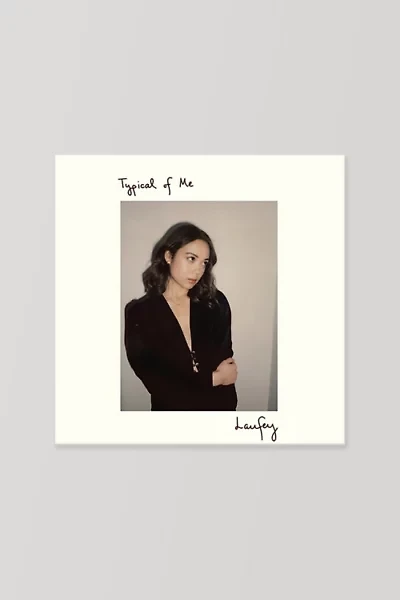
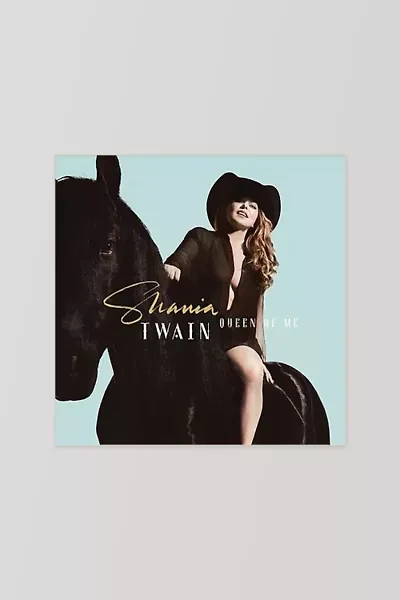

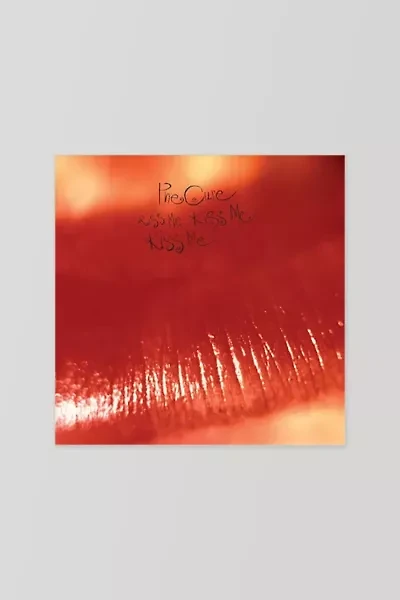
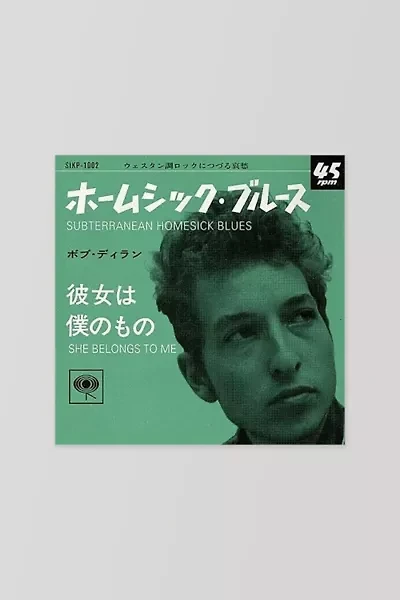


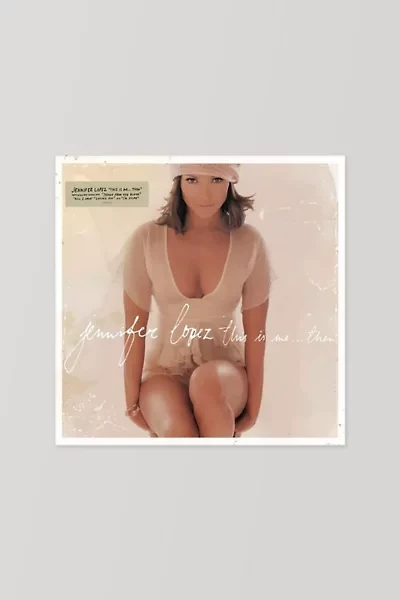

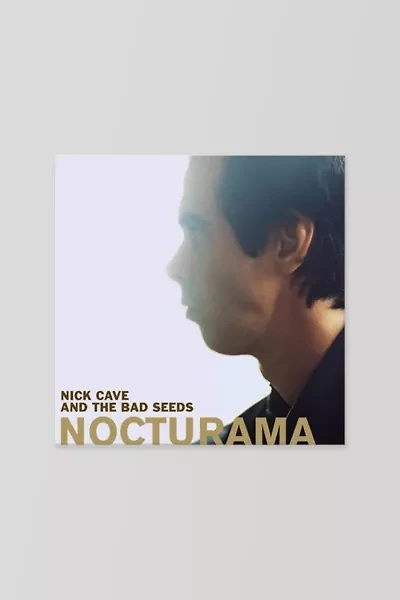
![Bad Moon Rising [LP]](https://prodimage.images-bn.com/pimages/0787996801810_p0_v2_s600x595.jpg)






